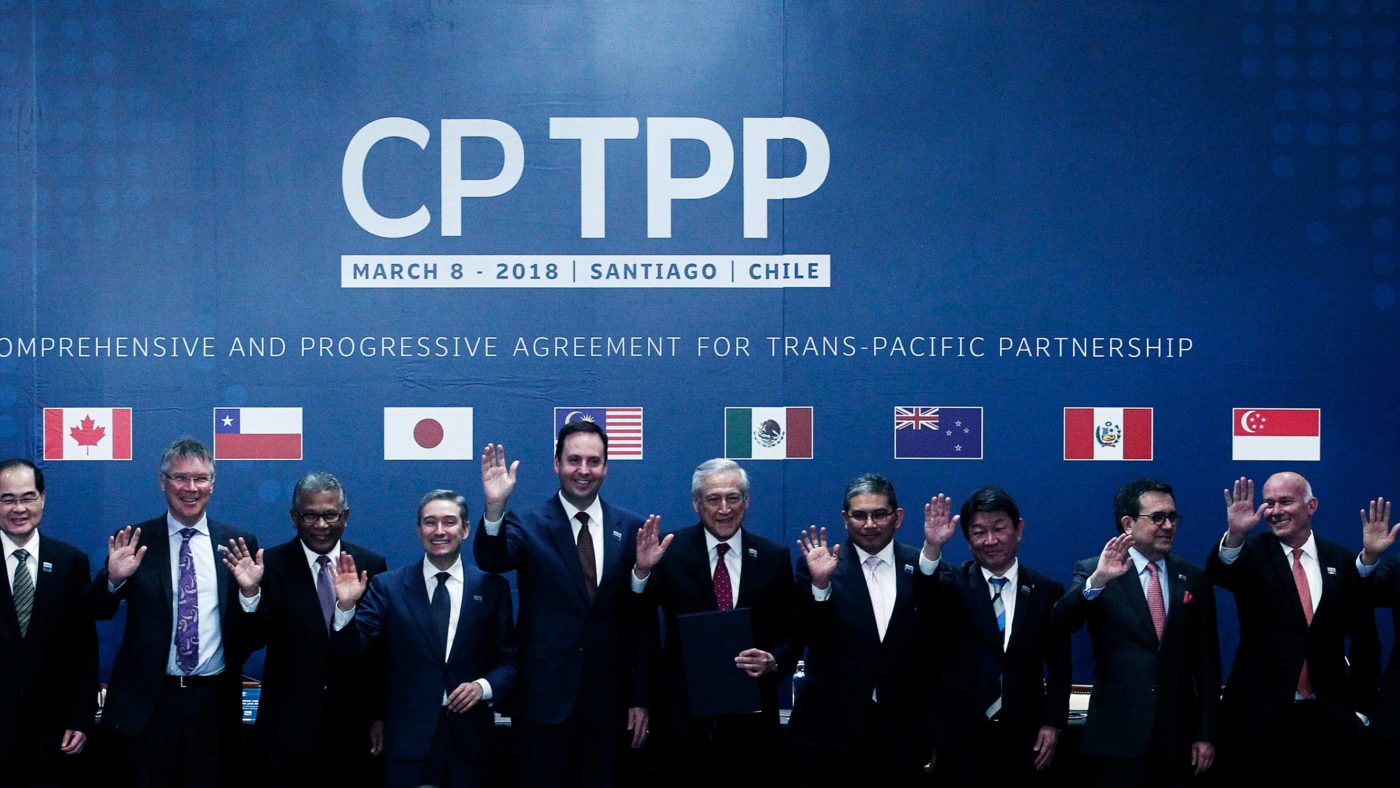The global multilateral trading system is under extreme pressure. The re-emergence of great power rivalry; the politicisation of trade; and the challenge China presents to the ‘Washington consensus’ mean that the conditions that helped facilitate the wave of globalisation seen at the end of last century and the beginning of this one is in jeopardy.
The stark reality is that the two global superpowers, the United States and China, enjoy significant market power which is best leveraged in bilateral or multilateral trade agreements. In addition, both economies are large enough to support the wide range of industries that make up the modern economy. Furthermore, the US (but not China) enjoys a large degree of self-sufficiency in energy and an abundance of food, meaning it needs the multilateral trading system less than middle and smaller powers do.
It is against this backdrop of a challenged global economic order that the UK’s accession to the superpower-free Comprehensive and Progressive Trans Pacific Partnership (CPTPP), made possible by its departure from the EU, assumes a significance beyond the historically-based and superficial statistical analysis. Middle powers, the UK included, find themselves torn between the cumbersome, all-inclusive and stagnant forum of the WTO on the one hand, or asymmetric relationships with the superpowers on the other.
CPTPP members account for about 16% of world GDP, similar to the EU (18%). While the geographical distance of the partner countries is important, and has been the focus of much negative analysis, so too is the fact that the CPTPP is not a ‘pay to play’ model, unlike the EU. The notional value of trade is a poor indicator of the welfare gains trade generates.
In the UK’s last year of single market membership we paid a net £12.6bn to the EU. A recent study found the net welfare losses on food imports to the UK from the EU stemming from the shift in regime from the single market to the TCA amounted to £500m a year on an import value of about £25bn (ie. the welfare loss amounted to 2% of the notional value). In 2022 – a fairly normal post-Covid year – our total trading relationship (goods and services, exports and imports) with the EU was about £770bn. Hence our 2020 net fiscal transfer to the EU amounted to nearly 2% of the value of trade, implying that the cost to participate may well have eaten up the lion’s share of the welfare gains had we remained inside the EU.
In addition many CPTPP economies are fast growing and the common thread is a commitment to multilateralism in economic exchange. Although geographically disparate, the members enjoy very different factor endowments and economic structures, making significant welfare and efficiency gains from trade more likely.
For example, Japan brings specialisation in high-end manufacturing, while Vietnam is starting to excel at the lower, cheaper end. Japan is heavily integrated into the northern Asian supply chain, while Vietnam is benefiting from the migration of some manufacturing from China. Australia, New Zealand, and Canada are rich in resources and land where the UK is deficient. When it comes to food security, diversification of supply is at least as important as proximity. Peru and Chile offer a complimentary combination of growth, resources, and geographical diversification. Mexico is thoroughly economically intertwined with the United States through its membership of the USMCA and is already benefiting from supply chain diversification away from China.
Furthermore, the CPTPP is not stagnant in terms of membership. There are currently five accession candidates, and while China’s accession would potentially be a double-edged sword and political considerations might prevent Taiwan’s accession if China’s is rejected, there are many more countries expressing an interest in the grouping. It is worth remembering that while the EU accounts for 18% of world GDP, middle and smaller powers account for about 35%.
In addition to geopolitical stress, global trade patterns are being dramatically altered by technological factors. The transition to renewable energy is changing the dynamics of energy security: elevating the importance of critical mineral supply over hydrocarbons. Likewise, the growth of digital trade is reducing the importance of economic distance in determining trade patterns and increasing the importance of coherent and facilitating regulation. In this area three CPTPP members (Chile, Singapore and New Zealand) are leading the way through the Digital Economic Partnership Agreement (DEPA).
Given the UK’s dependence on service exports to pay for imports, and the rising importance of digitalisation in delivering these exports, it is of the utmost importance for the UK that we are able to export our services globally under a regime that both respects consumer interests while facilitating producer capabilities and minimising costs – a balance that the EU has so far failed to produce.
It is clearly too soon to judge the success or failure of the UK’s membership of the CPTPP let alone to compare it to ‘what might have been’ if we had remained inside the single market. The equation, however, is more complex than the narrow focus on geography and historic trade patterns.
Click here to subscribe to our daily briefing – the best pieces from CapX and across the web.
CapX depends on the generosity of its readers. If you value what we do, please consider making a donation.


